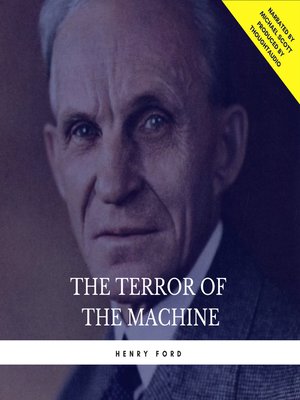
Sign up to save your library
With an OverDrive account, you can save your favorite libraries for at-a-glance information about availability. Find out more about OverDrive accounts.
Find this title in Libby, the library reading app by OverDrive.



Search for a digital library with this title
Title found at these libraries:
| Library Name | Distance |
|---|---|
| Loading... |
In this autobiography, the American industrialist Henry Ford wrote, 'Repetitive labor... is a terrifying prospect to a certain kind of mind... but to other minds, perhaps I might say the majority of minds, repetitive operations hold no terrors.' Pushing the 'efficiency of movement' system of Frederick Winslow Taylor to its ultimate realization, Ford tirelessly toiled to reduce factory and assembly line work to its essential operations. This, in turn, reduced factory workers to automatons, seemingly nothing more than extensions of the machines for which they labored. Ford was not bothered by the prospect of reducing people to machines, since he firmly believed that it did not bother them and that they could do no better. But, paradoxically, and like all the great American industrialists, Ford feared the prospect that these 'mindless automatons' might get organized and demand their rights. So along with efficiency of movement came a system of indoctrination and punishment to insure that workers obeyed orders. In short, the industrialized west was built on the systematic oppression of its working people.







